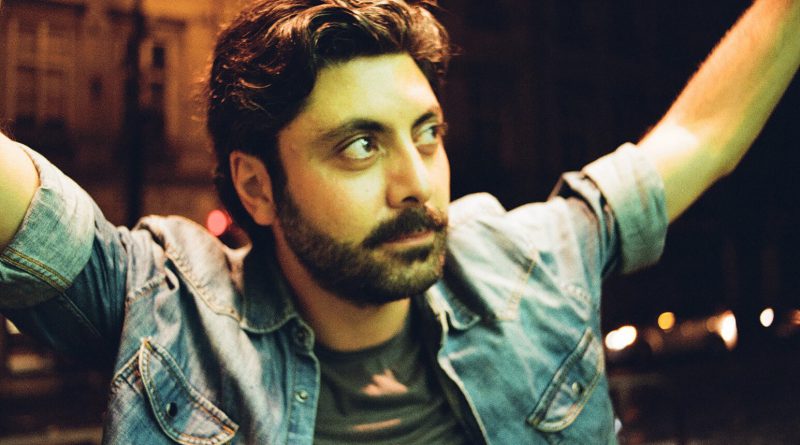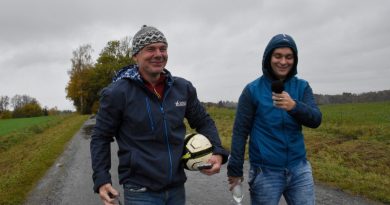Payam Razi: What comes to you is the result of your own efforts
I first met Payam Razi hanging around the Letná district in Prague last summer. Half a year later, we met for the second time and it is overwhelming to see how much has changed since then.
As a very young child growing up in Teheran, Payam Razi was surrounded by people closely connected to the film industry. „My father worked as a director of photography, there were always many filmmakers around, lots of actors, producers, assistants of assistants… Both the community of people I was messing around with and my family were liberal, yet we always understood what kind of society we are living in. Maybe the mood I felt then is very similar to life in Czechoslovakia during the 1970s and 80s. Because in Iran people grow up in a society which is dual. They act in some way when they leave their homes, and when they come back, they become someone else, I would say more themselves,“ explains Razi.
As a teenager, Payam Razi started to write and play various instruments and became more interested in music. Time passed quietly until he got into his first serious demonstration against the regime, together with a number of other young people, mainly university students. Along with almost a hundred people, he was arrested and questioned for a few days. „They asked me the same question over and over, because they did not know – am I just a young curious kid or am I a potentially dangerous element to the system,“ says Razi and shakes his head. His hair was cut and he ended up in detention. „For me, it was a really hardcore experience. Four, five days later, some official from the government came to the detention center and apologized to us. At the end he offered us money to get home,“ describes Razi. I just said ‚No way‘ – and walked home on my own, which took me more than two hours,“ tells Razi.
In 2005, Payam Razi was admitted to FAMU in Prague. He had sent out CVs to several different film schools all around the world – in New York, Sydney, Paris, London, Lutz… „FAMU responded quickly so there wasn’t much to think about,“ says Razi. „Some would call it a coincidence or something that just happened unexpectedly. For me, it is a matter of life approach. In some ways I was forced, in some ways I was lucky to have the decision-making ability. Anyway, you harvest what you sow,“ says Razi, thinking aloud.
After school, Payam Razi worked for a number of international film productions in various positions. Along the way, he met some of the Iranian journalists working at the Persian service of Radio Free Europe/Radio Liberty and expressed his interest in joining the radio station team. After an interesting coincidence he was offered a job and soon he became the Editor in Chief of Music at Radio Farda – the Iranian branch of the RFE/RL external broadcast service. „You know, there were not so many Iranians in town at that time,“ remembers Razi of the moment that affected his life for the next twelve years.
Along with his work for RFE/RL Payam Razi has been writing, directing and developing film projects. He made his first film at the age of 17, and since then he has shot four short films and three documentaries. Currently, his newest project is a feature film called Red Bear, which is in process. „I have been working on it for about two years. The story takes place in Svalbard, at the North Pole. Unfortunatelly, I am not allowed to say any more at this moment. Maybe in three years, when the project becomes a film,“ smiles Razi, with a flash of mystery on his face.
Although Payam Razi still works at the radio station (now as an external associate) and keeps himself focused on filmmaking, he currently runs his own business. „In September I started something completely new and risky, but also something that I have in my own hands,“ says Razi while serving me a glass of beer at Screenshot. Located at Petrské Náměstí in the centre of Prague, Screenshot provides a comfy hangout to meet with people, a bar with signature cocktails upstairs, and an exhibition space with a screening room downstairs. Cinema visitors can enjoy both art films and popular genre films that are part of the Czech(oslovak) cultural heritage. „Tonight, the film „Intimate Lighting“, directed by Ivan Passer, was on the schedule, but only five people came, so I decided to cancel it. Damn… my favorite one,“ says Razi, his voice colored with a little disappointment, yet curious about what the future will bring.
Text vznikl v rámci kurzu Angličtina pro žurnalisty
Foto: Tereza Nvotová




